The legislative decree n.193/2016 was converted in law n.225 of 1st December 2016, provided also the following important amendments…
The legislative decree n.193/2016 was converted in law n.225 of 1st December 2016, provided also the following important amendments:
From the 1st April 2017:
- The introduction of goods into a tax warehouse is exempted from VAT. Where the goods aren’t object of an intra EU acquisition or an importation, and they are extracted from the warehouse, the chargeable event is at the time of the extraction and VAT has to be paid directly without possibility of compensation.
From 2018:
- The deadline for the submission of the VAT return for tax year 2017 is between the 1st February and the 30th of April
- For the purchases of goods to consumers with a value exceeding 155 €, and these goods are transported outside the EU customs territory, the supplier must issue an invoice (i.e. tax free shopping invoice)
The above information was kindly provided Prof. Paolo Centore from Italy. If you need any further information you can directly contact Prof. Centore, email to: [email protected]
VAT returns
Bearing in mind that the new deadline for Italian VAT returns (drafting and) electronic forwarding is February 28th, 2017, as per art. 4 decree 193/16 two new quarterly VAT fulfilments will come into force in 2017: the report of data related to (both) sales invoices issued and purchase invoices posted in every quarter and the report of VAT settlements results for each quarter (in case of monthly settlements, relevant data have to be summed up).
As usual, reports will have to be electronically forwarded to Agenzia delle Entrate. Their complete and final data will be set out in a subsequent decree to be issued by Ministry for Finances. As to the first report, however, minimum contents have been reported by decree193/16:
- supplier and client complete data;
- invoice number and issue date;
- taxable base, VAT rate, VAT amount;
- kind of transaction;
Data mentioned under i), ii) and iii) should be basically captured from VAT ledgers. The fourth info – the one related to “kind of transaction” – will have to be specified in the next ministerial decree, since at the time being it is not entirely clear. More in general we expect that the new decree will not require any info other than those already included in the VAT ledgers. Please note that at the time being the purchase invoice number does not have to be mandatorily included in the purchase VAT ledger; so, as from January 2017 it will be better to include it.
As regards the report of periodic VAT settlements results, decree 193/16 does not provide any particular info, except the following ones:
- in case of separate VAT activities/accountings, a single report will have to be forwarded (including sums of the separate VAT accountings);
- report will have to be forwarded also in case of an input VAT balance arising from VAT settlements.
Once again, final and official information will be provided by the next decree issued by the Ministry for Finances.
As regards timing, the reports will generally have to be submitted by the end of the second month following the quarter end; thus: by May 31st, as to the first quarter; by September 16th, as to the second quarter; by November 30th, as to the third quarter and by February 28th of the following year, as to the fourth quarter. With regard to the first 2017 half-year only, returns will have to be forwarded just once, by July 25th.
As to the sanctions:
- omission of (or mistakes in) invoice data is fined with a sanction varying from € 2,00 per invoice, with a maximum fine is € 1000,00 per report.
- omission of (or mistakes in) results of periodic VAT settlements is fined with a sanction varying from € 500,00 up to € 2.000,00 per report.
VAT claims
VAT claims can be reported to attorneys/representatives too: further to a specific query raised by a Dutch company, Agenzia delle Entrate memo (risoluzione) n. 110/16 moves to a more modern and efficient refund procedure.
Bearing in mind that repayments can be made either in Italy or in another EU MS, memo 110/16 firstly points out that a special provision issued by Agenzia delle Entrate Director in 2010 highlighted that every refund can be credited to a bank account belonging to the claimant (only); this way, credits would have been more safe and quick.
New memo assumes that such targets can be also reached through a power of attorney, including all relevant data of both the company and the attorney. Answers to F.A.Q. reported in Agenzia delle Entrate website point out that p.o.a. should be kept by the attorney (and produced to Pescara VAT Office in case of VAT assessment).
A relevant issue relates to the authentication/notarisation. In this regard, new memo 110/16 points out the p.o.a. must be authenticated by a notary (or by a public officer) with an apostille (Den Haag Convention 1961); as usual, apostille is not required as regards notarisations made in countries subscribing Bruxelles Convention 1987.
Authentication can also be made by an Italian professionista iscritto in albi professionali.
Alessandro Garzon

